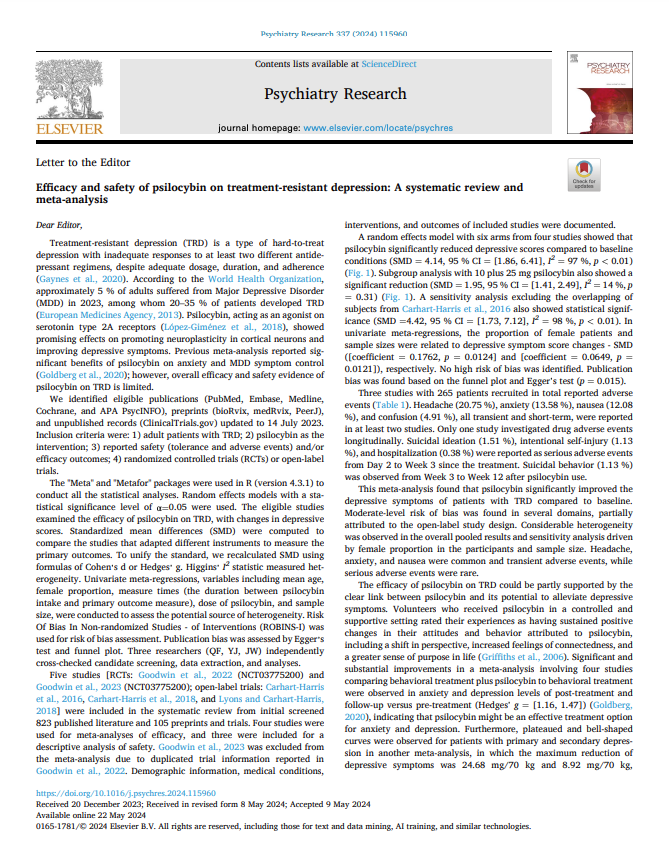
Treatment-resistant depression (TRD) is a type of hard-to-treat depression with inadequate responses to at least two different antidepressant regimens, despite adequate dosage, duration, and adherence (Gaynes et al., 2020). According to the World Health Organization, approximately 5 % of adults suffered from Major Depressive Disorder (MDD) in 2023, among whom 20–35 % of patients developed TRD (European Medicines Agency, 2013). Psilocybin, acting as an agonist on serotonin type 2A receptors (López-Giménez et al., 2018), showed promising effects on promoting neuroplasticity in cortical neurons and improving depressive symptoms. Previous meta-analysis reported significant benefits of psilocybin on anxiety and MDD symptom control (Goldberg et al., 2020); however, overall efficacy and safety evidence of psilocybin on TRD is limited.
